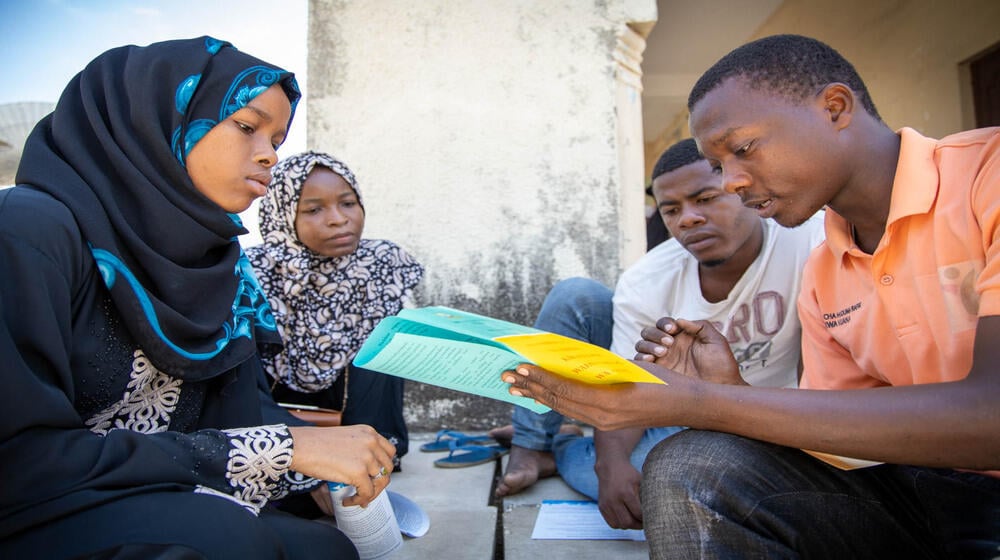As we reflect on the progress made in the global fight against HIV/AIDS, one thing is clear: the path to a world free of AIDS begins and ends with human rights. This is a message echoed by Dr. Natalia Kanem, UNFPA Executive Director, who emphasizes that the fundamental rights of individuals are at the heart of every effort to combat the epidemic.
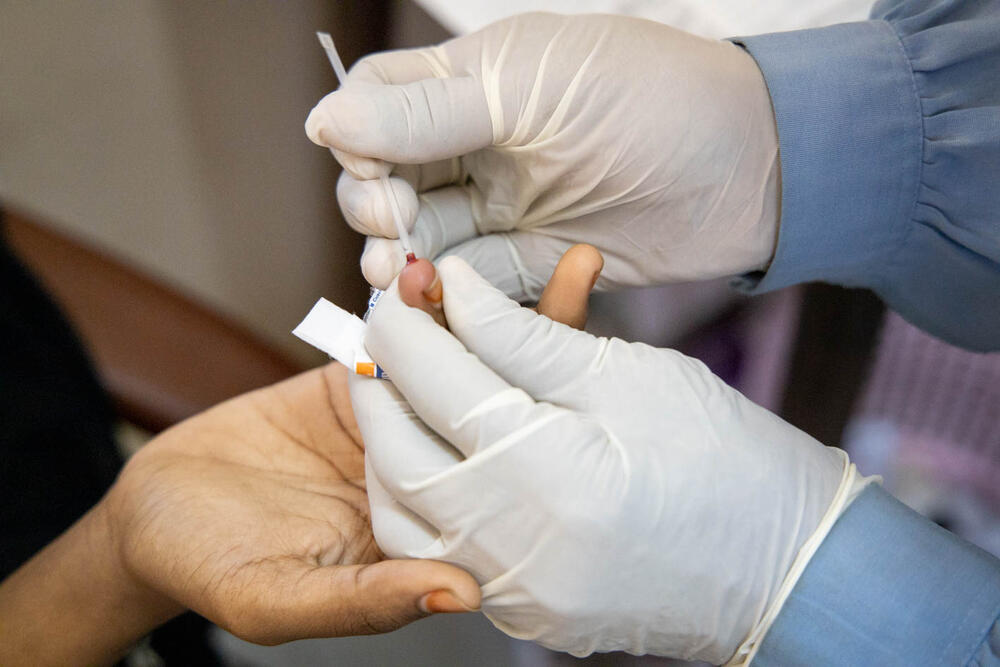
"The path to a world free of AIDS begins and ends with human rights," says Dr. Natalia Kanem. "The right to knowledge that is accurate and unbiased. The right to be treated with dignity and respect. The right to feel safe, no matter who you are or who you love."
For many, the journey to this world of empowerment has not been easy. Yet, across the globe, strides have been made to integrate HIV prevention, testing, and care and treatment into routine sexual and reproductive healthcare, thanks to partnerships between UNFPA, governments, and local communities. In Tanzania, this collaborative approach has led to tangible change.
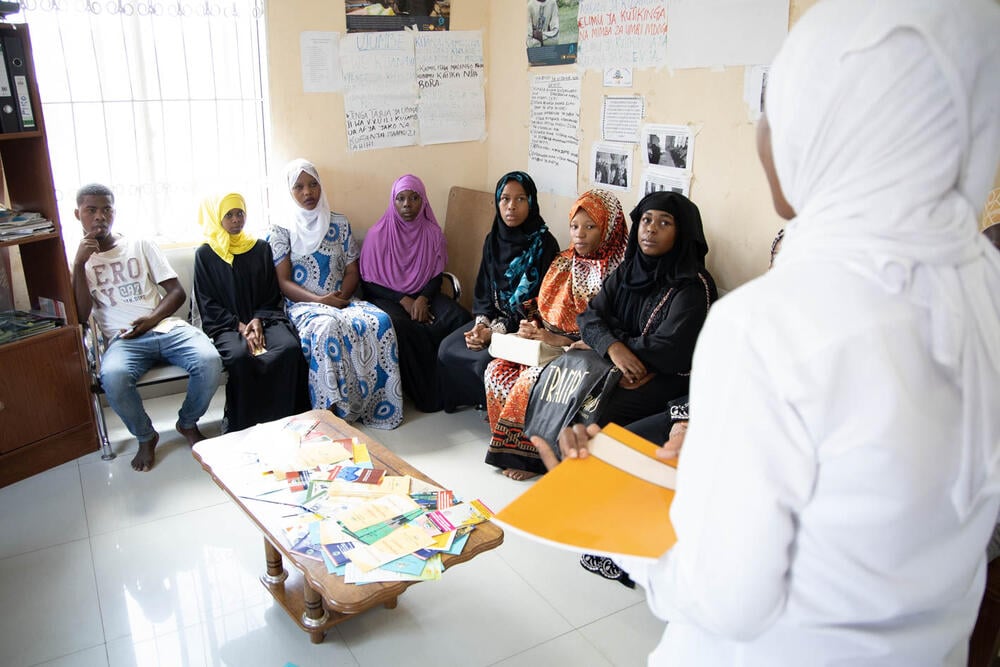
Through the UN Joint team on HIV/Aids in Tanzania, UNFPA has played a critical role in supporting the country's efforts to achieve zero new HIV infections. By focusing on the integration of HIV prevention and testing services into sexual and reproductive health care, UNFPA ensures that those most at risk—adolescents, women, and key and vulnerable populations—have access to vital information and services. UNFPA’s initiatives go beyond just healthcare—they also aim to empower individuals with the knowledge and resources they need to make informed decisions about their sexual and reproductive health.
One inspiring example of UNFPA’s work is the story of Amina, a 24-year-old woman from a rural community in Tanzania. Growing up in an environment where discussions about sexual health were rare, Amina found herself at risk. She had no access to HIV prevention information and services, no knowledge of her rights, and no avenue to seek support.
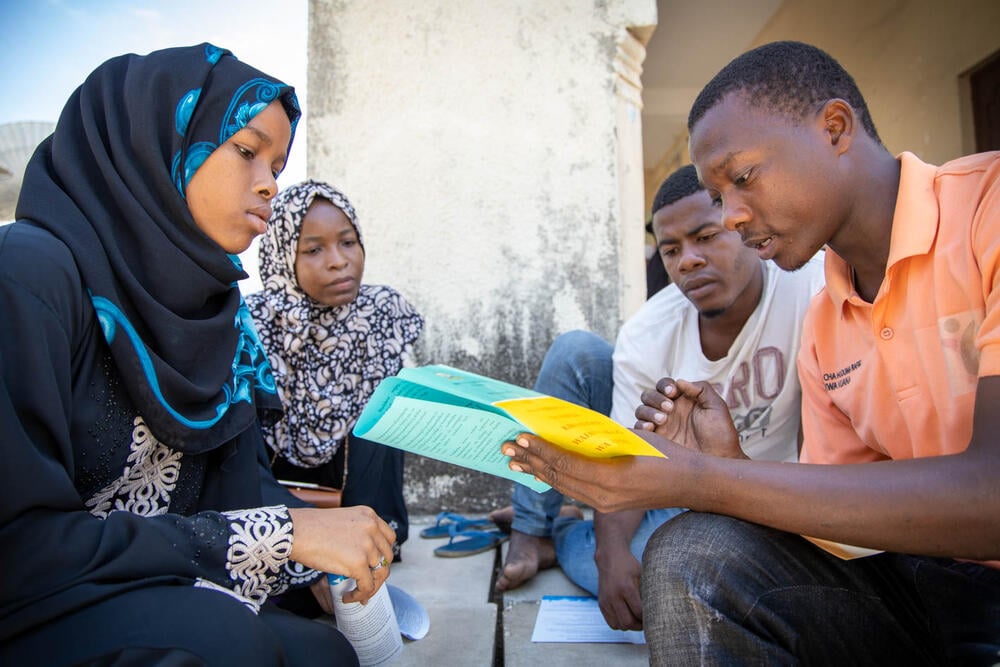
But everything changed when she became involved in a community outreach program supported by UNFPA and local health services. Through this program, Amina was educated about HIV prevention, and her rights to access healthcare and protection from discrimination were made clear. Armed with knowledge and the confidence to assert her rights, Amina began using available HIV prevention methods, including correct use of condom for protection against Sexually Transmitted Infections and unwanted pregnancies, HIV self testing, Pre-exposure prophylaxis (PrEP) and Post Exposure Prophylaxis (PEP).
"When I first learned about HIV, I was scared. I thought I was already at risk, and there was nothing I could do," says Amina. "But through this program, I learned how to protect myself and my future. I now feel empowered to make decisions about my health and my body."
Amina's story is just one of many. Across Tanzania, programs that prioritize human rights and accessible healthcare have been instrumental in reducing new HIV infections. Between 2010 and 2023, new HIV infections have fallen by 39% globally however prevalence is still 2.3% higher among young women and girls aged between 15 and 24 in eastern and southern Africa.

Tanzania has also seen significant progress in achieving the 95-95-95 target keeping tab that more needs to be done to ensure that people with HIV are aware of their HIV-positive status. However, progress has not been uniform, vulnerable populations remain disproportionately affected. Funding for HIV continued to shrink and with limited domestic funding in lower and middle income countries precipitating the risk of increasing rate of new HIV infections.
"While we celebrate the progress we’ve made in reducing new HIV infections, we must do better to address significant gaps in access to information and services for all”. Said Mark Bryan Schreiner, UNFPA Representative in the United Republic of Tanzania.
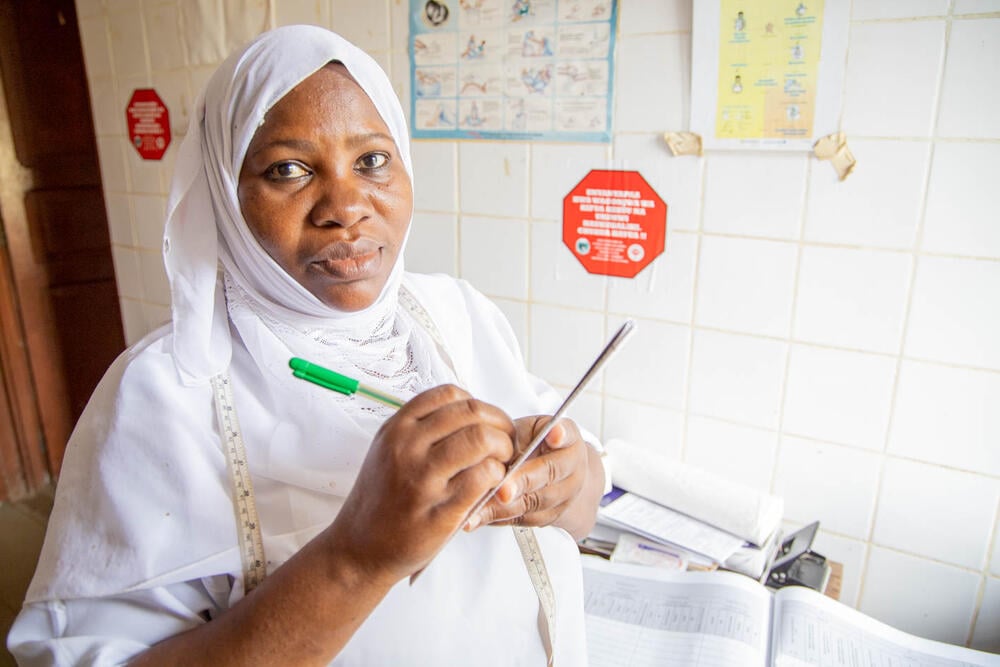
UNFPA’s role in addressing these barriers has been crucial. By supporting Tanzania’s health systems and advocating for inclusive policies, UNFPA has worked to integrate HIV prevention information and services into mainstream sexual and reproductive health services including Gender based Violence prevention and response (GBV) and Menstrual Health and Hygiene (MHH).
These services are designed to be accessible to all, especially marginalized groups who are at high risk of acquiring new HIV infections, ensuring that no one is left behind. UNFPA also focuses on reducing the stigma surrounding HIV and sexual health, empowering individuals to seek care without fear of discrimination and supporting government efforts in advocating for HIV self test testing.
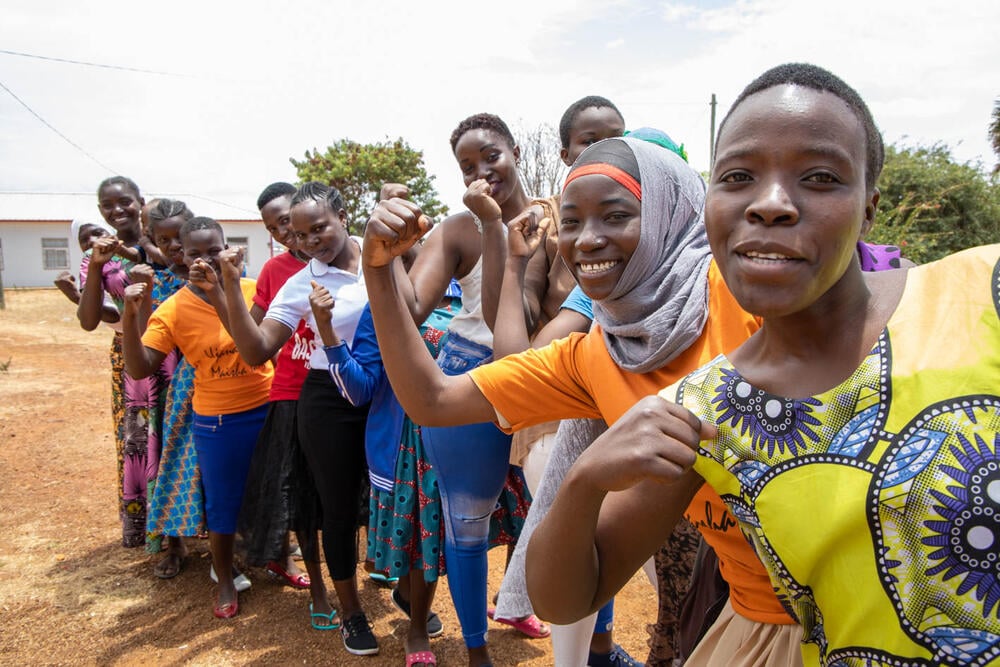
Women and girls, too, remain at higher risk of HIV infection. Data shows that women are twice as likely as men to acquire HIV and other sexually transmitted infections. This is particularly true for those who cannot make independent decisions about their sexual health due to pervasive social norms, gender-based violence, poverty, and marginalization.
“In many parts of the world including United Republic of Tanzania, women’s rights are still not fully realized, and HIV risks increase when women face violence or lack access to services,” Mark Bryan Schreiner continues. “We must work tirelessly to ensure that women and girls, especially those in vulnerable situations, can exercise their rights to make decisions about their health and well-being and access quality information and services.”
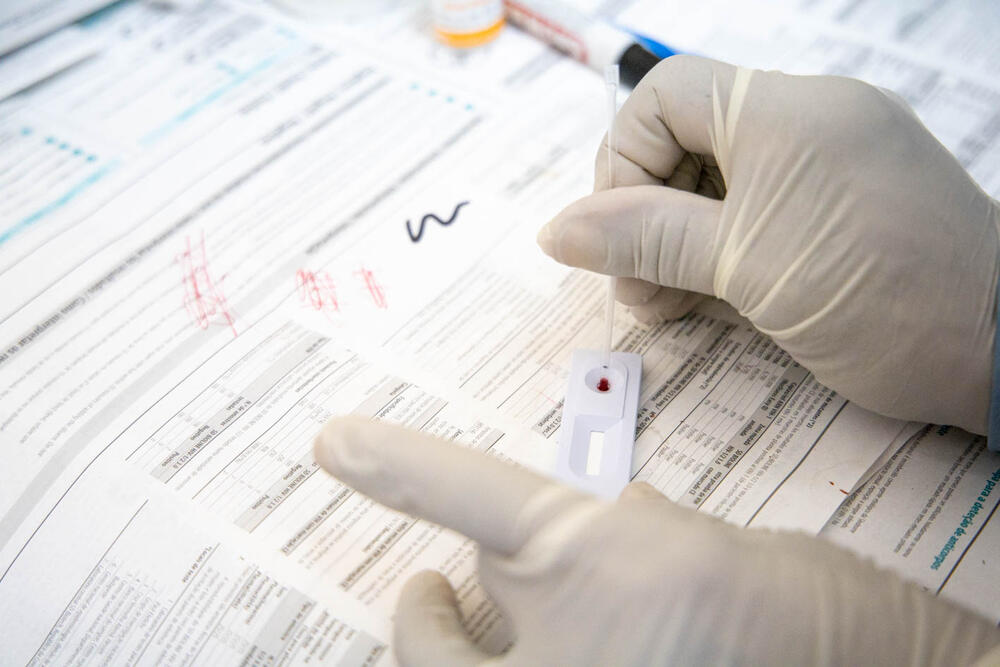
Through UNFPA’s support, health services in Tanzania have been strengthened to provide comprehensive sexual and reproductive health care for women and girls. This includes services that prevent HIV transmission, support survivors of gender-based violence, and ensure access to family planning and maternal health services. With a focus on empowering women and girls, UNFPA aims to reduce the gender inequality that drives the HIV epidemic.
It is also crucial to engage men in the conversation about HIV prevention and treatment. Many men continue to face societal barriers that prevent them from seeking healthcare. In many cultures, traditional gender roles dictate that men should not show vulnerability or seek medical help. Overcoming this reluctance is a critical component of comprehensive HIV prevention.
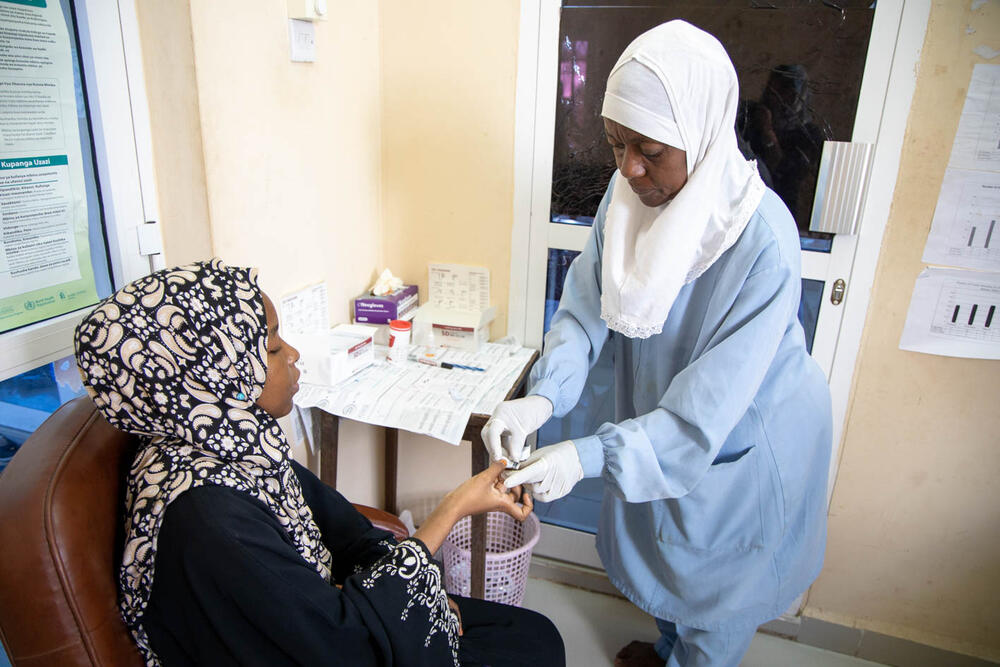
The success stories of individuals like Amina—empowered through human rights-based education and services—show that when people are given the tools and knowledge to make informed decisions, they can protect themselves from HIV and lead healthier, fuller lives. But there is still much work to be done. For the world to end AIDS, it is essential that everyone, especially those most at high risk, can access comprehensive HIV information and services without fear of discrimination or violence.
This World AIDS Day, Mark Bryan Schreiner calls on us all to take the right path. “It is not only the right thing to do; it is the most effective way to reach everyone affected by HIV,” he asserts. “When we prioritize human rights—education, access to services, and the dignity of every individual—we move closer to a world free of AIDS.”

The path to ending AIDS pandemic is long, but it is possible. It requires a commitment to human rights, to equality, and to ensuring that no one is left behind. Through education, open conversations, and comprehensive healthcare services, we can continue to make progress toward a future where AIDS is no longer a threat, and where everyone has the power to control their health and their future.
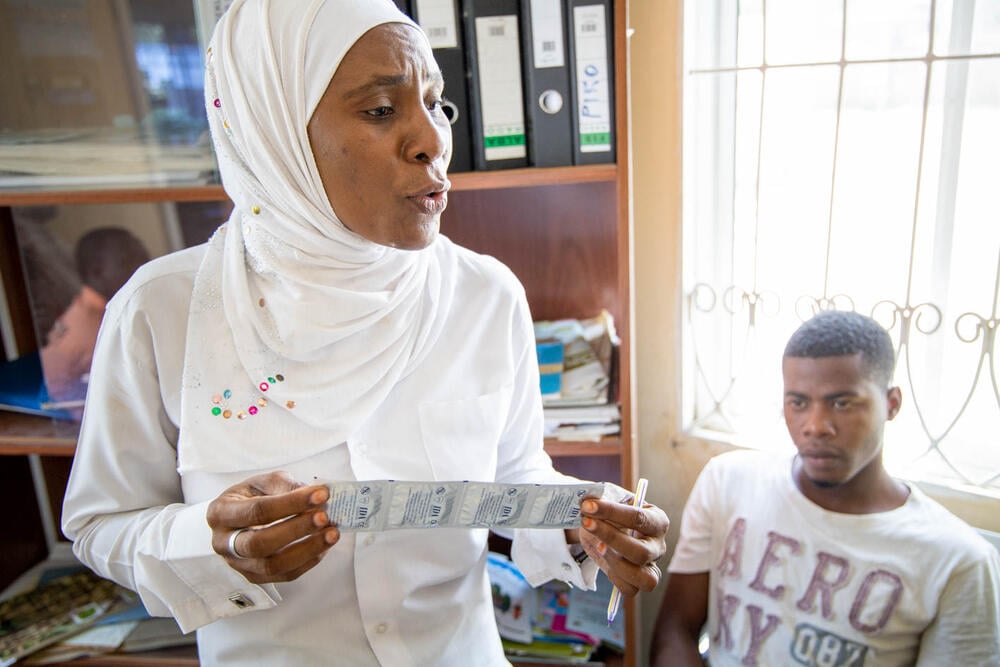
UNFPA’s continued support is key to achieving zero new HIV infections in Tanzania and across the globe. By empowering individuals, prioritizing human rights, and integrating HIV services into sexual and reproductive health care, GBV and Menstrual Health and Hygiene UNFPA is helping to create a future where everyone—no matter their gender, vulnerability, or background—can live a life free from the threat of HIV/AIDS.
-----
Media Inquiries:
Dr. Warren Bright,
UNFPA Communications Analyst,
United Republic of Tanzania
Mobile: +255 764 43 44 45
Email: bwarren@unfpa.org

